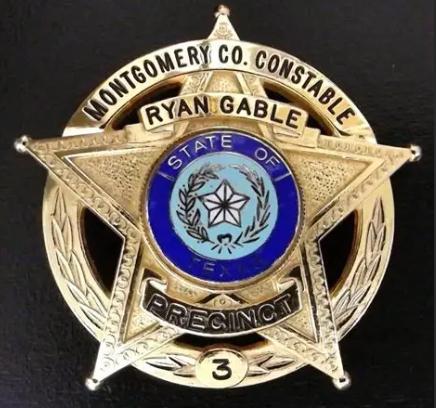
In Montgomery County, Texas, the radio code “10-96” serves a grim purpose: it categorizes individuals as “mental subjects,” signaling to law enforcement that someone may require emergency mental health intervention. While the intention behind this code is ostensibly to assist those in crisis, the reality is far more troubling. Without any requirement for medical evaluations or judicial oversight, an officer's subjective judgment can permanently stain an individual's reputation. This unchecked labeling creates a precarious situation where personal rights can be violated, leading to severe consequences for those unfortunate enough to be flagged with a “10-96” designation.
The misuse of the “10-96” code has turned a tool meant for public safety into a potential weapon against free expression and political dissent. Activists, whistleblowers, and everyday citizens find themselves targeted not for their behaviors, but for standing up against injustice or reporting misconduct. This blog aims to shed light on the dark side of the “10-96” classification, exploring its implications for civil liberties and the urgent need for reform in policing practices. By revealing how this code can serve as a mechanism for retaliation and digital defamation, we advocate for much-needed changes to protect individuals from arbitrary and harmful designations in law enforcement.
Understanding what “10-96” means and its implications in Montgomery County policing
In Montgomery County and many other regions in Texas, law enforcement employs the radio code “10-96” to categorize individuals as “mental subjects.” Initially intended as a helpful identifier for dispatchers and officers to assist individuals who may require mental health intervention, the code carries significant implications for those who are flagged. When an officer uses “10-96,” it signifies that they believe the person might be mentally unstable, suicidal, or in a state requiring emergency assistance. However, the process lacks essential safeguards, including mandatory medical assessments or judicial reviews, allowing anyone with a badge to label someone as a “10-96” based solely on their subjective opinions.
The consequences of this classification extend far beyond a momentary label. Once entered into dispatch logs, the designation can proliferate through law enforcement databases and become part of an individual's record. This often leaves the flagged person at a disadvantage in various aspects of their life, including potential legal and social repercussions. For instance, a driver marked as “10-96” during a traffic stop may face heightened scrutiny and bias from law enforcement officials. Furthermore, individuals may struggle with employment opportunities, access to public information, and their reputation in the community. Ultimately, this practice raises urgent questions about the fairness and legality of how mental health designations operate within the Montgomery County policing system.
The unintended weaponization of mental health codes like “10-96” against citizens
In Montgomery County, the radio code “10-96” has evolved from a tool for identifying individuals in need of mental health support to a dangerous instrument of suppression and stigmatization. Officers label citizens as “mental subjects” based solely on their assessments or prejudices, without any medical evaluations or oversight. This misclassification not only lacks accountability but also opens the door for potential abuse. Activists and whistleblowers, like Deborah Swan, have reported being marked as “10-96” after attempting to expose wrongdoing, signaling that such designations often serve to discredit individuals rather than provide necessary aid.
The implications of being labeled with “10-96” are profound and far-reaching. Once an individual is classified under this code, that designation remains part of law enforcement records, impacting various aspects of life including employment opportunities and rights to bear arms. Moreover, the stigma associated with mental health issues can lead to social ostracization, creating a chilling effect on free speech and civic engagement. The subtle yet pervasive threat posed by the misuse of “10-96” extends beyond individual cases; it undermines public trust in law enforcement and erodes the very foundations of constitutional rights. As communities become more aware of these violations, there is a growing call for reform to prevent this harmful practice from continuing unchecked.
Advocating for change: How to challenge the misuse of “10-96” in law enforcement practices
To effectively challenge the misuse of the “10-96” classification, community members must become informed advocates for systemic reform. Engaging with local law enforcement agencies is crucial. Start by asking your sheriff or constable what their policy is regarding the use of the “10-96” code. It’s important to understand whether officers have undergone medical training for mental health evaluations and who monitors potential abuses of this designation. By initiating these conversations, concerned citizens can create a ripple effect, promoting transparency and accountability within their communities.
Additionally, joining grassroots movements like the Justice Guard Initiative can amplify your voice and contribute to broader reform efforts. This organization is dedicated to compiling case studies, building legal toolkits, and fighting for data transparency and targeted individual protections. By supporting and collaborating with these initiatives, you’re not only advocating for your rights but also helping fellow citizens who may be suffering silently from the consequences of being labeled as “10-96.” Together, communities can push for legislative changes that ensure fair treatment, constitutional rights, and a more just policing system in Montgomery County and beyond.
Stay updated on our news and events! Sign up to receive our newsletter.
Thank you for signing up!
Something went wrong. Please try again later.